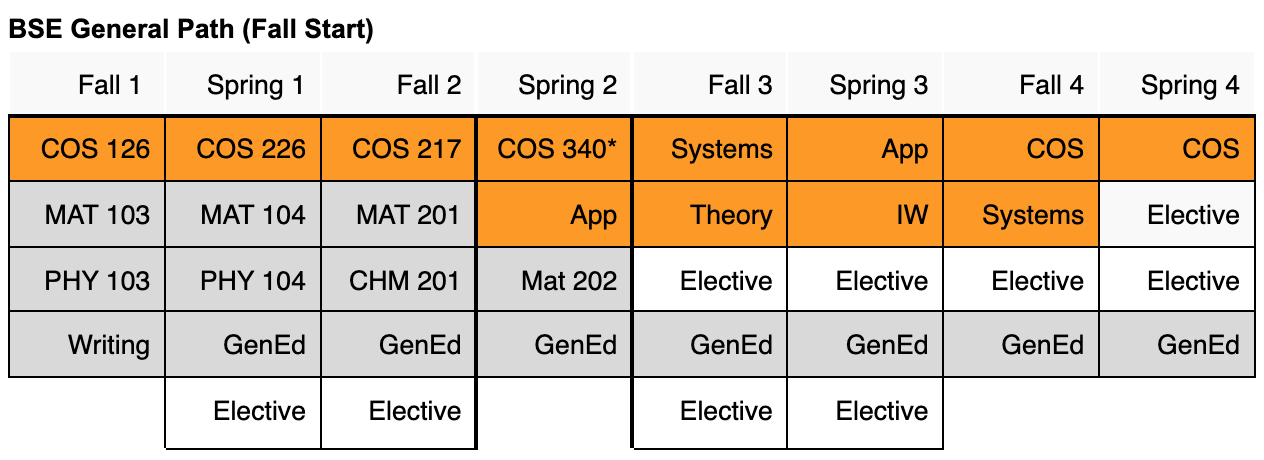Leaving friends and family for study in a foreign country seems daunting. Yet, deciding to cross the Atlantic to study in the US might be one of the best decisions you can make in your life. Nothing comes easy, and the road to studying in the most elite of colleges demands sacrifice and commitment. Here’s why you should consider studying in the US:
Career Opportunities ¶
There is ample support, typically through a staffed and dedicated careers office, to help you land internships and jobs. The careers office offers services such as: one-on-one appointments, resume & cover letter workshops, job fairs where companies recruit interns & full-timers, job/internship listings, etc.
The universities have strong alumni networks, which avail even more career opportunities. Want to pursue a career in X? Well, there is a database of alumni working on X looking to mentor current students. Or maybe alumni from company Y are hosting a panel on campus where they’ll discuss how working on X is like, while pointing you to open positions in Y.
Breadth and Depth ¶
Your “major” is your field of concentration, i.e. your intended degree, e.g. Economics, Math, Physics, Computer Science, Sociology, Anthropology, Electrical Engineering, etc.
Most universities have a wide range of class offerings such that there is no fixed path to getting your degree. You can take classes that you’re interested in, even when they don’t [directly] relate to your major. This enables you to develop both depth in your major, annd breadth in a few other disciplines.
For example, say you’re majoring in Computer Science at Princeton. There are different paths that you can take, e.g.

Path for gaining a BSE (Bachelor of Science in Engineering) Computer Science degree at Princeton. Sourced from https://www.cs.princeton.edu/ugrad/paths-through-the-major on Oct 17th, 2021.
While there are classes that you must take, e.g. COS 226, there is wiggle room in your schedule, especially in your 3rd and 4th years. In particular, notice the slots that lack specific classes in them.
This allows you to mingle with people from different majors in your classes and definitely helps you become an all-rounded individual. It’s also just fun studying things you’d never thought of before.
World-Class Education ¶
Most US universities are highly ranked. In these schools, you are taught by world-renowned professors and rub shoulders with smart students from all over the world. This challenging yet invigorating academic atmosphere pushes you to your limits and makes you a better scholar.
The huge endowments that US colleges have also mean that they avail more resources than local universities do. For instance, UoN’s library system has half a million volumes while Princeton has twenty-two million volumes! These endowments also make ambitious summer projects feasible, e.g. Stanford funded Norah Borus to run a coding camp in Nairobi in the summer of 2016 .
Professors have labs which are addressing ideas like Quantum Computing, De Novo Proteins, Wireless Communications, Anonymous Internet Networks, Autonomous Cars, Nanofabrication, Machine Learning Algorithms, etc.
Financial Aid ¶
This should have come top of the list because it makes it affordable and possible to study in the US. It may seem absurd, but you could get a financial aid package so good that it would be cheaper to study in the US than at a university in Kenya. See Financial Aid Applications for more information.
Friends from All Over the World ¶
Being in the US and away from family pushes you out of your comfort zone. You make new friends from all over the world, try out new things (lots of concerts in NYC!), and with time these new experiences form a vital part of who you are.
Through such interactions, you come to realize that not everyone shares your beliefs and/or perspectives. With time, you acquire a bird’s eye view that prompts you to be less biased towards other cultures, and to appreciate and weigh aspects of your own culture.
In an ideal meritocratic world, only your intrinsic qualifications would matter; where you got your education from would be inconsequential. However, opportunities are not equally available for all.
A survey of senior level and executive managers by Indeed (a top website for job listings) found that a degree from an elite university helps open the door for job opportunities.
Furthermore, some universities are feeder schools into various industries. For example, some tech companies assign dedicated recruiters (crucial in ensuring someone reviews your application) to universities with renown computer science schools, e.g. Stanford, MIT, etc.